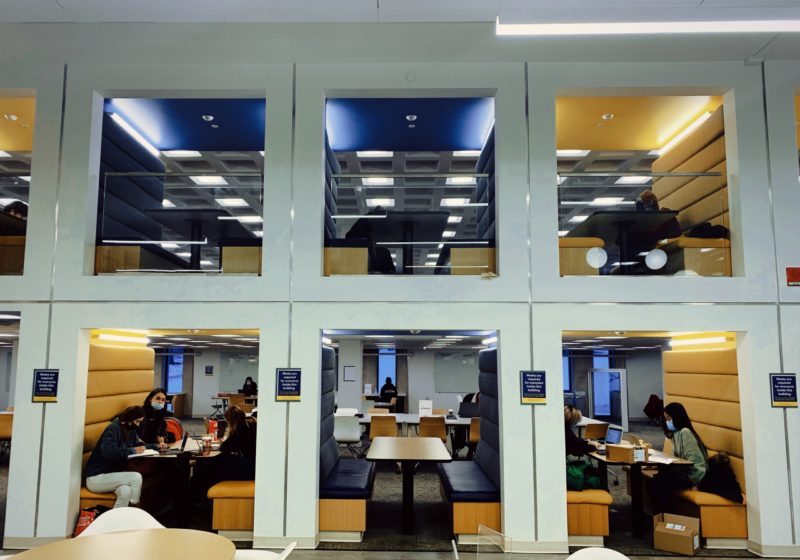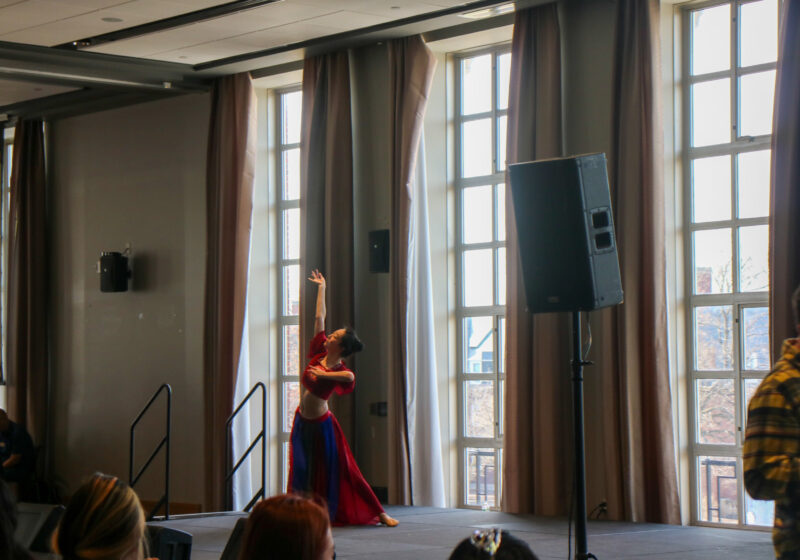With UR’s newest decision to return to campus on Jan. 31, Mangelsdorf’s earlier decision to go remote for the month of January has put into question how work study students, many of whose jobs are required to be in-person, and study abroad students have been affected.
Aleta Anthony, Director of Operations for the Center for Education Abroad, told CT in an interview that at this time, study abroad students have not been impacted by the decision to study remotely for January. “The most difficult challenge has been that some students may have not been able to apply to their first choice destination due to travel restrictions but students were able to choose alternate programs for their education abroad experience,” said Anthony.
Jenny Jordahl, a junior, is currently studying abroad in Barcelona, Spain on the IES Liberal Arts and Business Program, and interviewed with CT to provide insight on how Omicron may have impacted her travel. “UR going remote thankfully did not affect me because I heard from IES in late December that they were definitely still planning to run my program and UR did not send anything on the contrary where they would not allow me to go,” she said.
At this time, Anthony said that no student has been required to return home, although “global conditions can change.” If students were to return home, she says that “[Accomodations] would be handled on a case by case basis and be dependent on the program they’re on and financial aid status.”
“It’s definitely been stressful traveling with COVID[-19] and making sure I remain safe while enjoying my time here in Barcelona and taking advantage of all the city has to offer,” says Jordahl. “It’s been hard finding the balance of being safe and also meeting new people and doing fun activities with them.”
As for students who are employed by the University, most have had their campus jobs paused while others have been able to continue in-person or online. Some students have weighed in on how their jobs have been affected and how students were approved to work.
Jack Schneider, a senior, participates in an on-campus job as a Technical Assistant in the paleomagnetism lab. In an interview with CT, he said that he had been working in-person throughout winter break but when UR decided to go remote, he received an email from his supervisor to not come in the next day because undergraduate research was not allowed to be in-person.
“The next week, after not working for a few days, I received another email telling me to pick a time to come to campus, get a microscope, and grab the samples I needed to work with and bring home. I also had to bring home a laptop from the lab to take pictures through the microscope as the software doesn’t work on my computer,” said Schneider.
“I am lucky enough that I was living at home throughout the break which is relatively close to campus, only about a 40 minute drive, so I didn’t have any bills to pay or anything like that. I can’t imagine what I would have done if I was relying on the income from my campus job. I was very fortunate,” he said.
Senior Rose Mournighan, an IT Assistant and Student Lead at Rettner, also provided insight on her personal experience with communication between employers and student employees when UR decided to go remote.
“In the email employees got, there’s this little line that says ‘students may not return to campus in order to work.’ My other bosses saw no issue with this, but [one boss] saw this as ‘oh, unless they were here over winter break, [students] cannot return to work.’ So, there was a bit of an issue at first doing that but […] at IT we figured out who was allowed to work and who wasn’t,” Mournighan noted. “Otherwise, there really was no communication. There always was some understanding that if [Rettner] was open, we’d be able to work, and I was told almost immediately that we would be open.”
Mournighan says that she received the notification that the space would be open the same evening the decision was made to go remote, and that a few days later it was announced that some students would be able to work. Mournighan alleged she was told by her supervisor that “[e]very single employee who was working this month had to get approval from the president.” Supervisors would bring a list of employees to the president who wanted to work and if their jobs “were deemed necessary” they would be allowed to work in person. “But not everyone was necessarily approved and I know a few of my coworkers got approved to work even though they weren’t approved to stay here [on campus].”
However, Donald Hall communicated to the CT a different process, who with the help of his staff reviewed all requests for campus work. Students who stayed over break who hadn’t been working but “whose jobs became necessary when we re-started classes remotely” were compiled “in a list of names and why the duties were necessary for re-starting the semester, and then those names were submitted to the Interim Provost (Sarah Peyre) for her approval.”
“She always supported the needs of the units as long as the rationale was clear,” wrote Hall in an email to CT. “No students were allowed to return early to campus to take on work, though anyone who could work remotely (from their homes, as TAs or in other functions) were allowed to start remotely without needing to seek authorization. Only in-person work for on-campus students needed approval.”
The approval process might not have properly addressed every student’s needs. While Mournighan was able to return to work in-person, she acknowledged that not everyone was able to do the same due to specific departments being shut down and that some students who were willing to work weren’t shifted to other areas of work while others were. “The approval thing was able to circumvent some of the restrictions and I don’t know how many people took advantage of that but that was definitely something,” she said. “There was some hierarchy there. For example, my housemate who works at Carlson wasn’t able to get transferred over to Rush Rhees. He wasn’t really notified of that.”
Mournighan said that to her knowledge, there weren’t any accommodations for work study students who remained home. However, she noted that the email from SA president Sabeet Kazmi and Vice President Rusama Haque to provide support to students after the pause on returning to campus was announced “was helpful, but hearing that from a University official instead of the SA president would have been very, very nice.”






